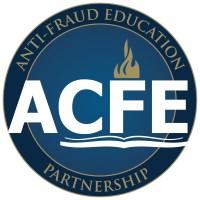
Upper-Division Certificate in Fraud and Forensic Accounting
The upper-division certificate in fraud and forensic accounting provides an unrivaled skillset to Salisbury University students. This certificate program is open to all university students who have completed ACCT 201: Financial Accounting and ACCT 202: Managerial Accounting with a grade of C or higher, and have earned at least 56 credits.
Enhance Your Career
Fraud examiners and forensic accountants play a very important role in helping organizations to avoid and detect fraud, and bring those who commit fraud to justice.
The fraud certificate program at SU is designed for those seeking a career as a forensic accountant, fraud examiner, internal auditor, compliance officer, financial institution examiner and other related positions. Completion of SU’s fraud program positions students to enter these professions with highly sought-after skills.
First offered in 2017, SU’s certificate is the only undergraduate program of its kind to be offered within the University System of Maryland and one of only a handful of undergraduate fraud certificate programs in the United States.
SU’s program trains students with the people skills to conduct investigations, interview witnesses and confront suspects in a variety of environments, ranging from small towns to the offices of the Fortune 500. Technology and data analysis skills also are needed to find evidence or insight.
 For accounting majors, this certificate program contributes to the 150 credit hours necessary to sit for the Certified Public Accountancy (CPA) examination.
For accounting majors, this certificate program contributes to the 150 credit hours necessary to sit for the Certified Public Accountancy (CPA) examination.
For accounting and non-accounting majors, this program also prepares students to sit for the Certified Fraud Examiner (CFE) examination.
Learn More
If SU’s fraud and forensic accounting certificate program interests you, please contact us. We are happy to provide you a one-on-one briefing about our program and career prospects for fraud examiners and forensic accountants, qualification and exam requirements to become a CPA or CFE, and discussion of the process of enrollment in our program.
Financial crime is everyone’s business, because organizations lose an estimated five percent of their gross revenue to fraud. The fraud and forensic accounting program trains a new breed of financial crime fighter, blending accounting, data analysis, and criminological theory. Fraud examination is one of the hottest career opportunities, and assures adventure in your future career.